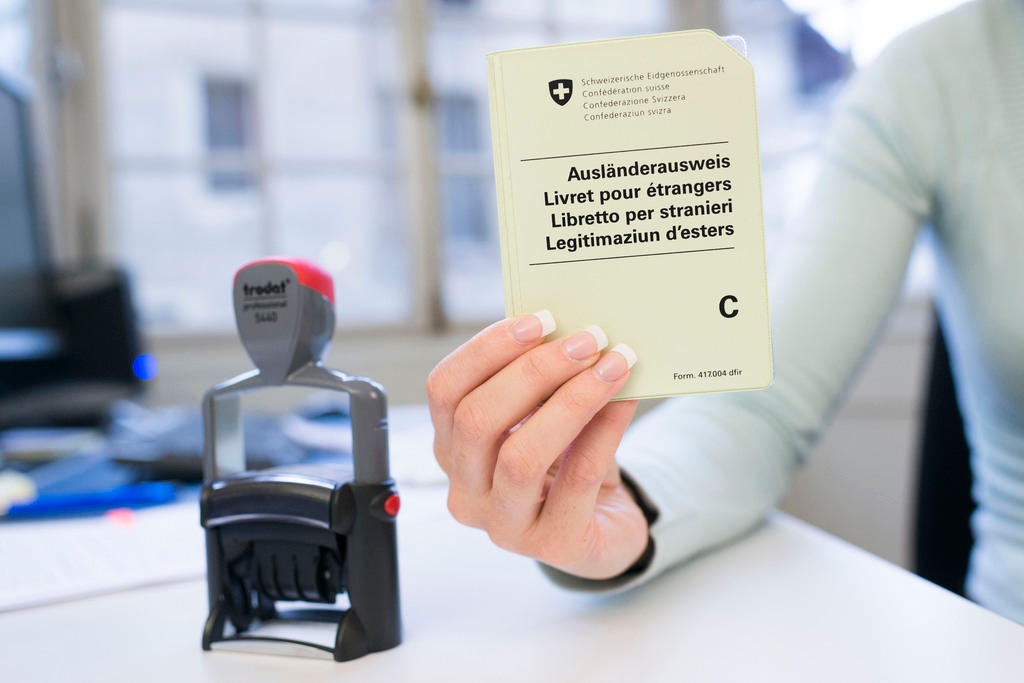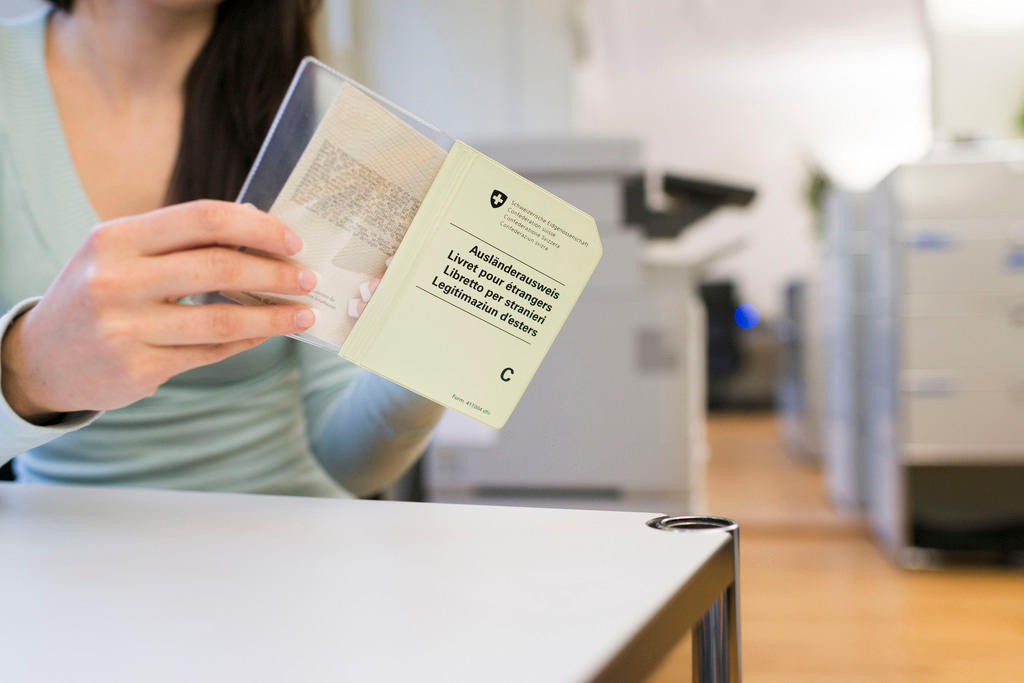Are you the very model of a modern Alpine citizen?

If you can “respect public security and order, uphold the values of the constitution, contribute to the economy and speak a national language to a required level”, you will – in theory – qualify for a permanent residence permit in Switzerland. But what do these vague concepts mean in practice?
“The new foreigners and integration law does not lay down how a ‘model Swiss citizen’ should be. It simply defines, among other things, under what circumstances a residence permit can be obtained,” Lukas Rieder, spokesman for the State Secretariat for Migration, told swissinfo.ch.
But he must have some tips for law-abiding swissinfo.ch readers? “Unfortunately not.”
On Monday, parliament revised the foreigners law, increasing the responsibility of foreigners to integrate into society if they want a C permit, a permanent residence permitExternal link.
Given that from January 1, 2018, a C permit will be required for a Swiss passport, will being caught without a tram ticket for example see your chances of becoming Swiss go up in smoke?

More
Work permit in Switzerland
Rieder points swissinfo.ch towards the cabinet’s statement from March 2013 on the new law. Under “respecting public security and order”, the cabinet clearly has more serious issues in mind, such as whether you are currently facing legal proceedings, owe alimony or generally have done something that would result in you being “put on record”.
As for upholding the values of the constitution, Rieder says that includes basic values such as “sexual equality, freedom of religion, all people being equal before the law, the right to personal freedom, freedom of opinion and information, and the right to privacy”.
Language skills
The cabinet has yet to decide on the level of language skills needed for a C permit – and indeed, when the new foreigners’ law will come into effect – but Rieder draws swissinfo.ch’s attention to the Swiss citizenship law, which comes into effect on January 1, 2018.
This says an applicant for a Swiss passport must be able to prove spoken language skills of at least B1External link and written skills of at least A2 as judged by the Common European Framework of Reference for Languages.
This will not be necessary, according to the citizenship law, if one has a national language as a mother tongue, has attended obligatory schooling in a national language for at least five years or has graduated from at least secondary school in a national language.

In compliance with the JTI standards
More: SWI swissinfo.ch certified by the Journalism Trust Initiative












You can find an overview of ongoing debates with our journalists here . Please join us!
If you want to start a conversation about a topic raised in this article or want to report factual errors, email us at english@swissinfo.ch.